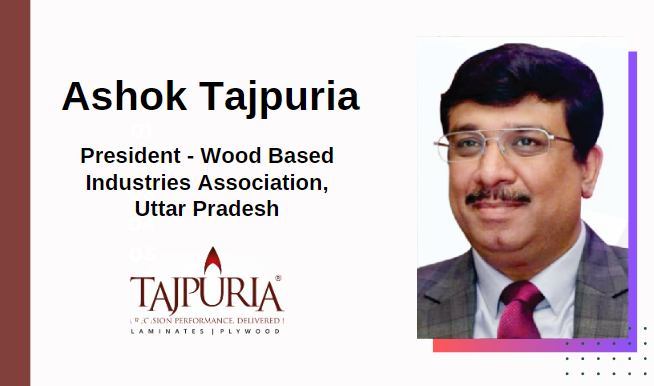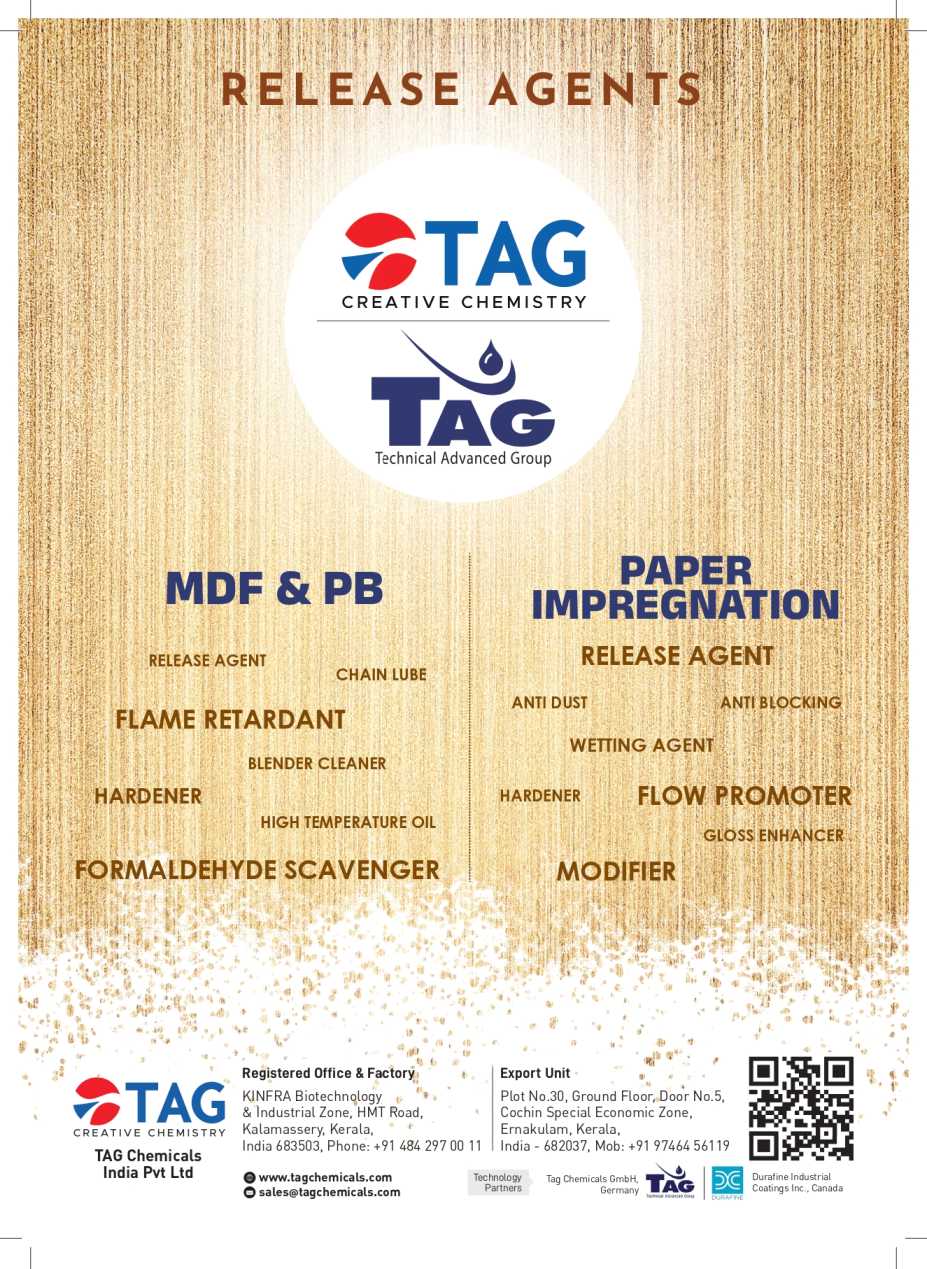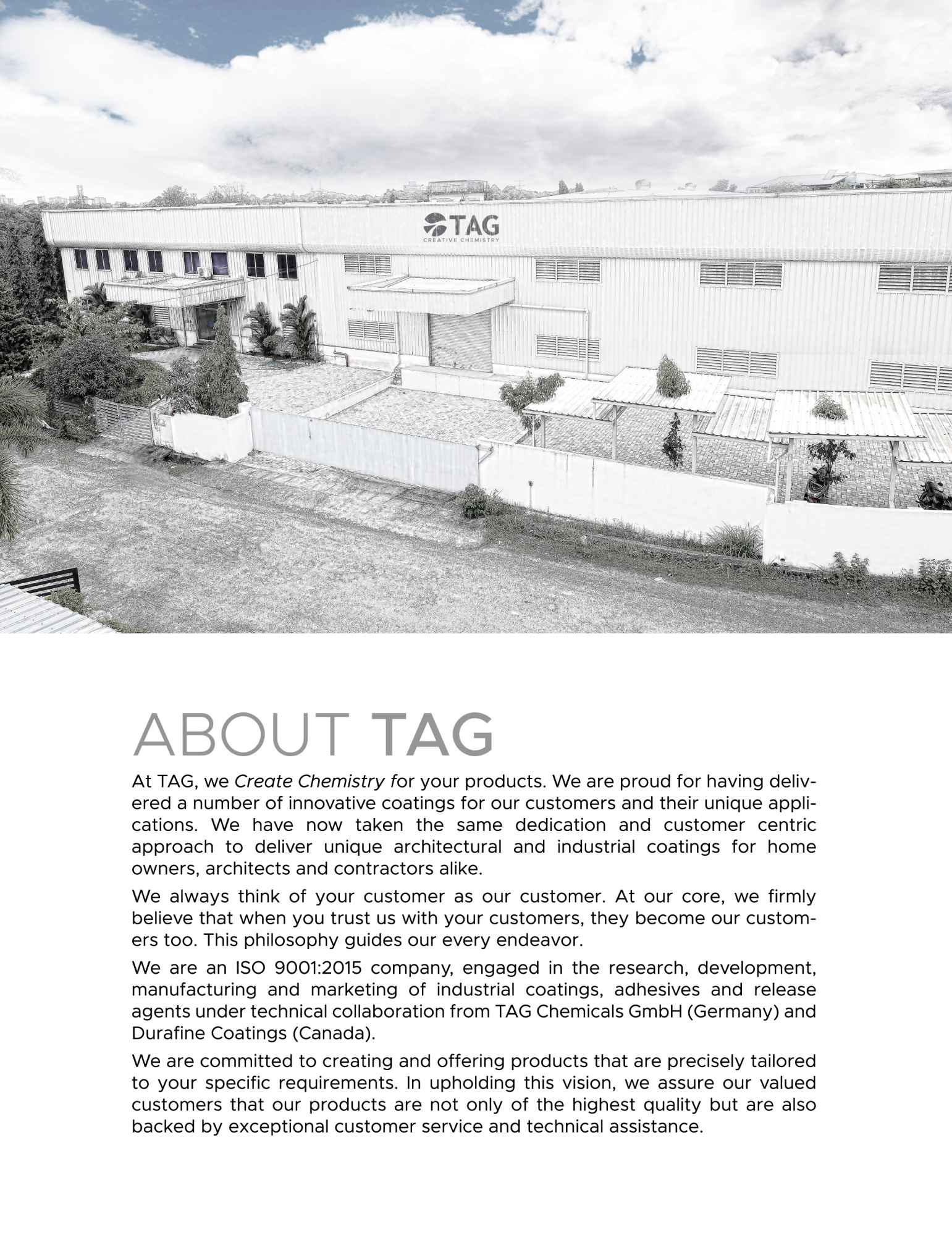
The Wood Industry should be utilized – Ashok Tajpuria
- अगस्त 7, 2023
- 0
The wood industry should be utilized for the benefit of society and farmers
Those producers who want to manufacture non-ISI marked products should also have the right to sell their goods in the market. Moreover, considering the limited purchasing power of such consumers, products should be available at a level that is suitable for them. The government should pay attention to this aspect as well.
What are your thoughts on mandatory ISI mark in Plywood?
Currently, the plywood industry is not fully prepared for this. If the policy is implemented abruptly, it can harm both the industry and the general public. The standards set have been based on decades-old practices, which are difficult to meet in the present times. Earlier, timber used in plywood was sourced from forests, but now it comes from the agriforestry sector. There is a significant difference in the quality of plywood produced using these two sources. The new policy needs to consider this aspect.
How can it be challenging to the industry.
Plywood is primarily a cottage industry, and not all producers can afford to manufacture high-quality plywood. Implementing new standards abruptly may force some manufacturers to shut down their operations. The policymakers should give them time to adjust and adapt. The policy-makers should also consider the perspectives of the ground-level stakeholders. This way, both the industry and policymakers will benefit.
Apart from the textile and footwear industries, ISI mark has also been made mandatory in many other sectors.
There is a significant difference here. Plywood cannot be compared to textiles. Plywood is mostly a cottage industry, and in such a scenario, not every producer can meet the standards for ISI mark. If the mark is imposed without considering the ground realities, it can lead to various difficulties. Ensuring the quality of plywood needs a proper testing laboratory, which incurs considerable costs. Such expenses can be challenging for small and new factories. Therefore, policymakers should ensure that all provisions are sound and certain before implementing the policy.
Do marketing will be tough
Considering the consumer’s preferences, the market needs to observe whether the quality being discussed can get the expected price. Producing high-quality goods will also increase production costs. When all standards are complied with, the use of quality raw materials will be necessary. Consequently, the final products that come to the consumers are likely to be expensive. The availability of skilled artisans is a separate but important concern. Will the market find enough customers willing to pay such high prices? This aspect also needs to be considered. Only after carefully considering these aspects should the standard be implemented. Otherwise, there is a possibility that corruption might increase if it is implemented haphazardly.

So, what should be done according to your opinion?
The most important thing is that there are buyers of all types in the market. For the middle-class or those buyers who cannot afford to spend too much on plywood, there should be products available in the market that cater to their needs as well. Their requirements should also be considered. It should be ensured that both ISI marked and non-ISI marked products are available. Those producers who want to manufacture non-ISI marked products should also have the right to sell their goods in the market. Moreover, considering the limited purchasing power of such consumers, products should be available at a level that is suitable for them. The government should pay attention to this aspect as well.
Apart from this, what else is needed for the plywood industry?
To run the timber industry properly, the mandi tax on wood should be completely abolished. In Uttar Pradesh, a nominal one and a half percent tax is levied as the mandi tax, but there is a lot of bureaucracy involved in it. The process is so cumbersome that it creates difficulties at many levels. The farmer brings the wood directly from the field to the factory. Because, the goods are not sold in the mandi; they are sold exclusively in the factories.
During this process, whichever mandis comes in the way, the farmer is harassed in the name of gate pass, form inspection, etc. This leads to the exploitation of the farmers, as they do not have any documents for the goods.
Only the factory owners can deduct the mandi tax. The registration in the mandi is done for the factory, not for the farmer. So, the farmer can only get a 6 R Form when his wood is sold to a factory. And the chances of this deal is finalized in advance; is very minimum.
The objective of the mandi committee was to benefit the farmers, but in the case of wood, the farmers are being harassed and exploited. Moreover, in many places, people have put small weigh bridge and buy wood from the farmer at lower rates. Then after issuing form, they sell it ahead.
In this way, the farmers are at a loss at every stage. Therefore, the mandi system and tax is not beneficial to the farmers by any means.
But, Exchequer will be in loss
That’s not true, because wood also has an 18 percent GST. In comparison the mandi tax, which is only one and a half percent, should be abolished. Even the government has assured every time that the process should be easy for business. The mandi system is making it cumber some. If the harassment caused by the mandi system is reduced, it is likely that the supply of wood will increase. According to an estimate, if the mandi system is abolished, and the supply of wood increases by ten percent at least, it is certain that the government will receive more revenue. The farmers will also directly benefit from it. Because in any business, lesser the formalities lesser the obstacles, the more the business and industry prosper.
What would you like to request from the government?
The plywood industry in North India is already going through one of its most challenging periods due to the shortage of raw materials. In the current situation, many industrialists are finding it difficult to keep their factories operational. Adding a new burden to them and entangling them in complex processes will not be beneficial. I request the government to take these circumstances into account while making decisions so that the crisis of employment does not arise among people associated with the industry.
काष्ठ उद्योग को समाज और किसान के फायदे के लिए उपयोग किया जाए
जो उत्पादक गैर आइएसआई मार्का का माल तैयार करना चाहते हैं, उन्हें भी अपना माल बाजार में बेचने का अधिकार मिलना चाहिए। और ऐसे उपभोक्ता जिनकी क्रय शक्ति कमजोर है, उनके लायक, उनके स्तर का उस मूल्य पर प्लाई मिल सके, इस बात पर सरकार को अवश्य ध्यान देना चाहिए।

प्लाईवुड में अनिवार्य आईएसआई मार्का को लेकर आपकी क्या सोच है?
इसके लिए अभी प्लाईवुड उद्योग पूरी तरह से तैयार नहीं है। अभी एक दम से यदि पॉलिसी लागू कर दी जाएगी तो उद्योग के साथ साथ आम जन दोनो को इससे नुकसान हो सकता है। इसमें जो मानक तय किए गए हैं, वह दशकों पुरानी व्यवस्थाओं को ध्यान में रख कर बनाए गए हैं। जो वर्तमान में पूरे करने मुश्किल है। क्योंकि तब जो लकड़ी प्लाईवुड में प्रयोग की जाती थी, वह जंगलों से आती थी। अब लकड़ी कृषि वानिकी क्षेत्र से आ रही है। दोनों के प्लाइवुड की गुणवत्ता में काफी अंतर है। इसलिए जो नई पॉलिसी बनाई गई, इसमें इस ओर ध्यान देना आवश्यक है।
इससे उद्योग को किस तरह की दिक्कत आ सकती है
काफी मुश्किल आ सकती है। सही बात तो यह है कि प्लाईवुड अभी भी ज्यादातर कुटीर उद्योग है। इस स्थिति में सभी उद्योगपति इस स्थिति में नहीं है कि उच्च गुणवत्ता की प्लाई तैयार कर लें। अब यदि उन पर बिना किसी तैयारी के नए मानक लागू कर दिए गए तो वह अपना काम बंद करने पर मजबूर हो जाएंगे। नई पॉलिसी बनाने में उनका भी ध्यान रखा जाना चाहिए। उन्हें वक्त दिया जाना चाहिए। नीति निर्धारकों को जमीनी स्तर पर भी सोचना चाहिए। जिससे उद्योग व नीति निर्धारक दोनों को ही लाभ होगा।
टैक्सटाइल और फुटवेयर के अलावा अन्य कई क्षेत्रों में भी तो आईएसआई मार्क अनिवार्य कर दिया गया है
इसमें बड़ा अंतर है। टेक्सटाइल की तुलना प्लाईवुड से नहीं की जा सकती। प्लाईवुड में कुटीर उद्योग ज्यादा है। आईएसआई मार्का बड़ी कंपनियों को तो फायदा दे सकता है, लेकिन छोटी इकाइयों को इससे नुकसान ही होगा। इसके लिए नीति निर्धारकों को चाहिए कि वह बीआईएस मानकों को समय के अनुसार ठीक करें। इसके बाद वह उद्योगपतियों से बातचीत करें जो इसे लागू करना चाहते है। यकायक पॉलिसी लागू नहीं होती, इससे कई तरह की दिक्कत आ सकती है। प्लाईवुड की गुणवत्ता सुनिश्चित करने के लिए प्रयोगशाला की बात हो रही है,उसे स्थापित करने में इतना खर्च आ जाएगा जो कि एक छोटी और नई फैक्टरी के लिए चुनौतिपुर्ण होगा। इसलिए नीति नियंताओं को ध्यान रखना चाहिए कि सभी प्रावधान पहले ही सही और निश्चित होने चाहिए।
क्या मार्केटिंग में दिक्कत आ सकती है
उपभोक्ता के मिजाज को समझते हुए बाजार को भी तो देखना होगा कि जिस गुणवत्ता की बात हो रही है, बाजार में उसका भाव भी मिल पाएगा या नहीं। उच्च गुणवत्ता का माल बनाने के लिए जाहिर है, उत्पादन लागत भी बढ़ जाएगी। जब सभी मानकों का पालन किया जाएगा, तो उसी तरह का कच्चा माल भी इस्तेमाल करना होगा। जो निश्चित तौर पर अभी उपयोग में आने वाले सभी वस्तुओं से महंगा ही होगा। कुशल कारीगरों की उपलब्धता एक अलग ही महत्वपूर्ण प्रश्न चिन्ह है। तो क्या बाजार में इतनी अधिक कीमत देने वाले ग्राहक मिल पाएंगे। यह भी तो देखना होगा। इस तरह के पहलू पर विचार करने के बाद ही मानक लागू होने चाहिए। यदि एकदम से लागू कर दिए गए तो इसमें भ्रष्टाचार बढ़ने की संभावना से भी इंकार नहीं किया जा सकता।
तो आपके विचार से इसमें क्या होना चाहिए
सबसे बड़ी बात तो यह है कि बाजार में हर तरह का खरीददार है। मध्यमवर्ग या वह खरीदार जो प्लाइवुड पर ज्यादा खर्च नहीं कर पाता, उसके लिए बाजार में कौन सा उत्पाद होगा? इस वर्ग की भी तो जरूरत है। वह कैसे पूरी होगी? इस पर भी तो ध्यान दिया जाना चाहिए। यह सुनिश्चित होना चाहिए कि आईएसआई मार्का व गैर आइएसआई मार्का का प्रावधान होना चाहिए। जो उत्पादक गैर आइएसआई मार्का का माल तैयार करना चाहते हैं, उन्हें भी अपना माल बाजार में बेचने का अधिकार मिलना चाहिए। और ऐसे उपभोक्ता जिनकी क्रय शक्ति कमजोर है, उनके लायक, उनके स्तर का उस मूल्य पर प्लाई मिल सके, इस बात पर सरकार को अवश्य ध्यान देना चाहिए।

इसके अलावा प्लाईवुड उद्योग के लिए और क्या होना चाहिए
काष्ठ उद्योग को सही तरह से चलाने के लिए लकड़ी से मंडी शुल्क को एकदम हटा देना चाहिए। उत्तर प्रदेश में मंडी में सिर्फ डेढ़ प्रतिशत शुल्क लगती है, लेकिन इसमें बहुत ज्यादा औपचारिकता है। इसकी प्रक्रिया इतनी पेचीदा है कि कई स्तर पर दिक्कत आती है। किसान लकड़ी खेत से सीधा फैक्ट्री तक लेकर आता है। क्योंकि मंडी में तो माल बिकता नहीं है, माल तो बाहर फैक्ट्री में बिकता है।
उस दौरान जितनी भी मंडी रास्ते में पड़ती है, वहां किसान को गेट पास, फार्म आदि की जांच के नाम पर परेशान किया जाता है। क्योंकि किसान के पास तो माल के कागज होते नहीं है। इस तरह से किसानों का शोषण होता है।
मंडी शुल्क तो सिर्फ फैक्टरी संचालक काट सकते हैं। मंडी में फैक्ट्री का रजिस्ट्रेशन होता है, किसान का नहीं। इसलिए किसान 6त् फार्म तब ही कटवा सकेगा, जब उसकी लकड़ी किसी फ़ैक्टरी में बिक जाएगी। और यह सौदा अग्रिम ही हो चुका हो, इसकी संभावना बहुत कम होती है।
मंडी समिति का उद्देश्य तो यह था कि इससे किसान को फायदा हो, लेकिन लकड़ी के मामले में तो किसान का शोषण ही हो रहा है। इसके अलावा कई जगह लोगों ने छोटे-छोटे कांटे लगा रखे हैं, वह किसान से लकड़ी औने पौने दाम पर ख़रीद लेते हैं। फिर लकड़ी का फार्म 9 काटने के बाद उसे आगे भेज देते हैैं।
इस तरह से किसान तो सभी जगह नुकसान में ही रहता है। इसलिए मंडी सिस्टम और शुल्क किसान के कतई फायदे में नहीं है।
लेकिन इससे तो राजस्व का नुकसान होगा
ऐसा नहीं है, क्योंकि लकड़ी पर 18 प्रतिशत जीएसटी भी है। तुलनात्मक रूप से मंडी शुल्क जो सिर्फ डेढ़ प्रतिशत है, इसे खत्म कर दिया जाना चाहिए। यूं भी सरकार की नीति है कि बिजनेस के लिए प्रक्रिया आसान होनी चाहिए। मंडी सिस्टम इसे मुश्किल बना रहा है। अब यदि मंडी व्यवस्था से होने वाली दुश्वारियां अगर कम होंगी तो संभावना है कि लकड़ी की आवक बढ़ेगी। एक अनुमान के मुताबिक मंडी सिस्टम खत्म करने से यदि लकड़ी की आवक दस प्रतिशत भी बढ़ती तो जाहिर है, इससे सरकार को ज्यादा रेवेन्यू मिलेगा। किसान को भी इसका सीधा लाभ होगा। क्योंकि किसी भी व्यापार में जितनी भी औपचारिकताएं कम होगी, बाधा कम से कम होगी, उतना ही व्यापार व उद्योग तरक्की करता है।
सरकार से क्या आग्रह करना चाहेंगें
उत्तर भारत में प्लाईवुड उद्योग कच्चे माल की कमी के कारण अपने अब तक के सबसे मुश्किल दौर से गुजर रहा है। वर्तमान परिस्थितियों में भी कई उद्योगपति अपने कारखाने चलाने में असमर्थ हो रहें है। इस स्थिति में उसके ऊपर एक नया बोझ डालकर प्रक्रियाओं में उलझा देना कतई सही नहीं होगा। सरकार से आग्रह है कि इन परिस्थितियों को ध्यान में रखते हुए अपने निर्णय ले। ताकि उद्योग से जुड़े लोगों में रोज़गार का संकट पैदा ना हो।

































































